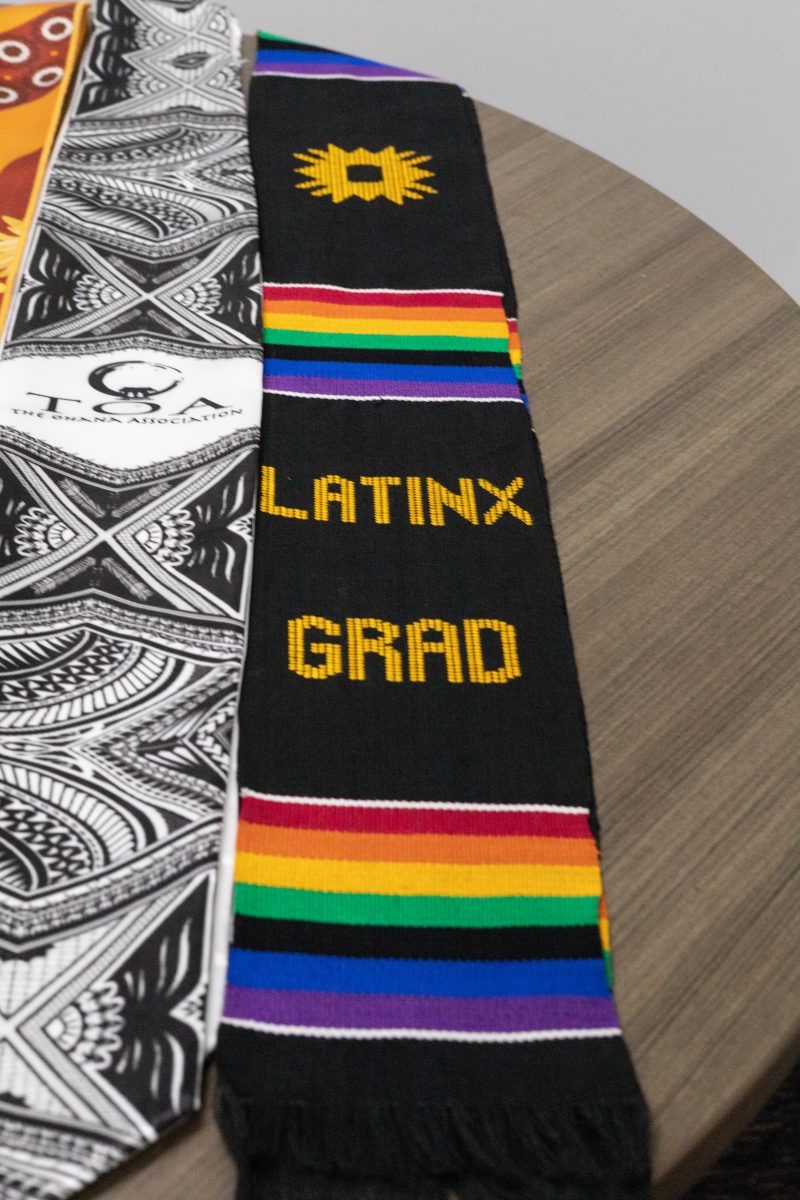Should students carry guns on campus? This Wednesday, a four-panelist committee discussed these types of questions in the Shepherd Union Building’s ballrooms

with Weber State University students. Dane LeBlanc, WSU police chief; Fred Donaldson, principal of DaVinci Academy; Stephanie Hollist, associate general counsel at WSU; and Phil Kirk, captain of the Park City Police Department, made up the committee.
The event was Deliberative Democracy Day, sponsored by the American Democracy Project.
“The goal of the American Democracy Project is to create the next generation of active citizens,” said Leah Murray, faculty in residence in the Community Involvement Center. “One of the things that active citizens need to do is have conversations about hard topics without screaming at each other. What we are trying to do is teach students to disagree without being disagreeable.”
Students met in assigned groups before the panel discussion to exchange views on gun laws and come up with questions to pose to the panelists.
“As a student, what are we supposed to do if a shooter is on campus?” asked Trevor Wessman, a business administration student. “I know that a lot of faculty and staff have already been trained for specific scenarios like this because we have Code Purple here at Weber State, but that’s not going to get everyone ready for that.”
Code Purple makes WSU students aware of health and safety emergency situations via text, voicemail and e-mail.
Responding to Wessman’s question, LeBlanc said, “What you should do is, first and foremost, take cover and make sure you are not in harm’s way. It’s always helpful to give us a very accurate description of the individual: race, color, clothes, pants — everything you can give us is very helpful, and location is extremely important.”
LeBlanc and State Risk are producing two videotapes at WSU. The videos will teach students and faculty how to react to intruders, and will be made available to schools in Utah. Students interested in active shooter instructions should call WSU campus police to set up a date.
Kirk gave a different approach for handling an intruder.
“First, look at getting out of there as quickly as possible,” he said. “So, not necessarily barricading yourself in, but if you have the opportunity to flee, run away, maybe (that) might be your first option. You have to align that with a lot of different circumstances, but it is something different that we did before. We used to, primarily, have this lockdown approach to schools and facilities, and now we are looking at maybe a better way to escape without getting themselves harmed.”
The panel also discussed whether gun education should be taught in schools.
“Any education we can give . . . that will help people, whether they’re students or adults, understand guns and safety, I think that’s a good thing. I just have a different take on things,” Donaldson said. “I think we overlook the issue when we talk about guns. My philosophy is that it’s not guns that kill; it’s people that are doing it. I looked at three things that are really affecting the issues. One would be the breakdown of the family. Two would be the secularization of public schools; we should be teaching good morals. And (three) the glorification of violence in the media. I think that good homes and schools that enforce values are extremely lacking in our society.”
Kirk offered a law-enforcement perspective on the issue of gun education.
“You know we are trained and certified in firearms and undergo that on a regular basis,” Kirk said, “but I’ll tell you most police officers are probably like me and feel like we never get enough training as far of operations and safety of the gun. Anything we can do to help emphasize that with the public (is positive). (If) police officers feel inadequate with the training, then I would think the public should feel the same way.”




















